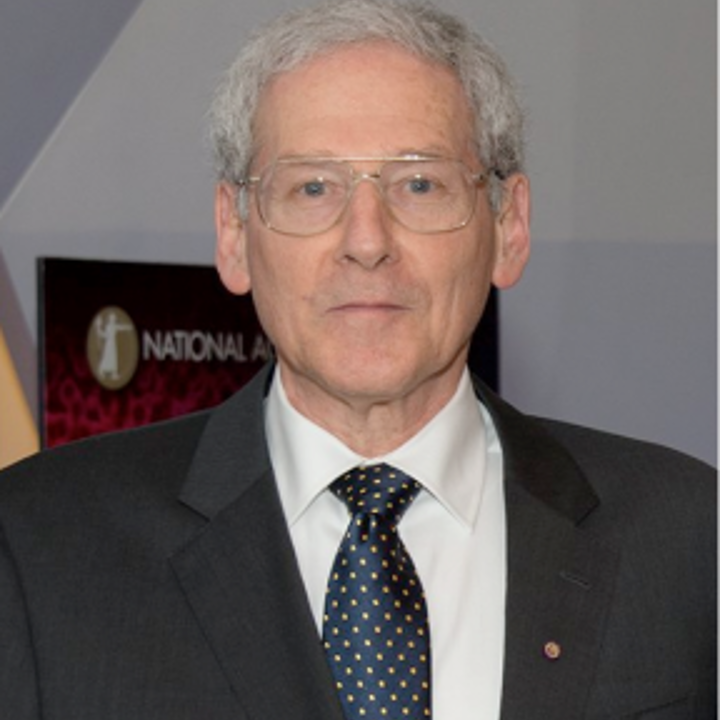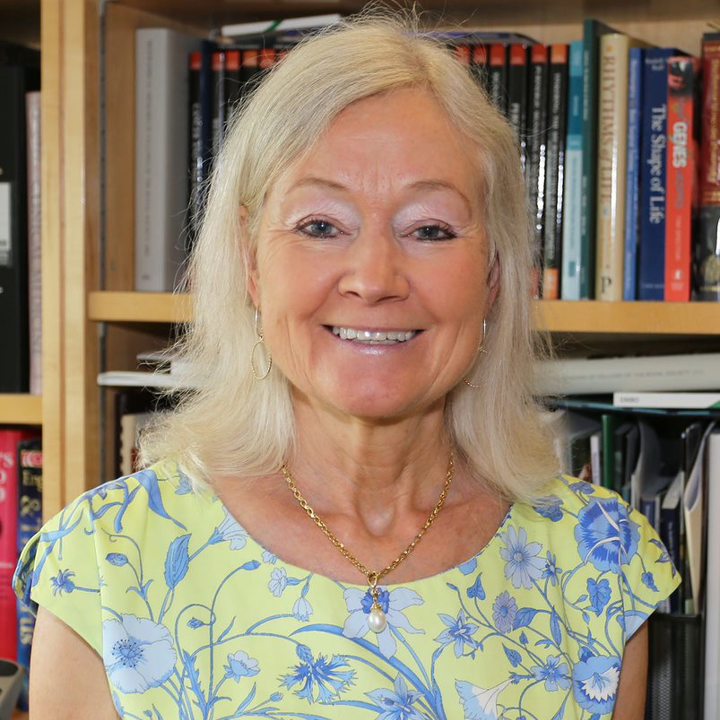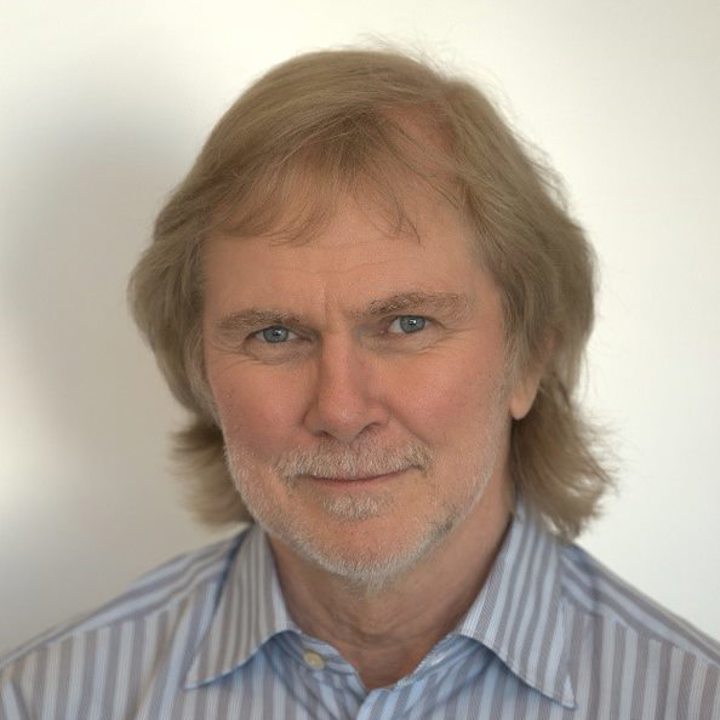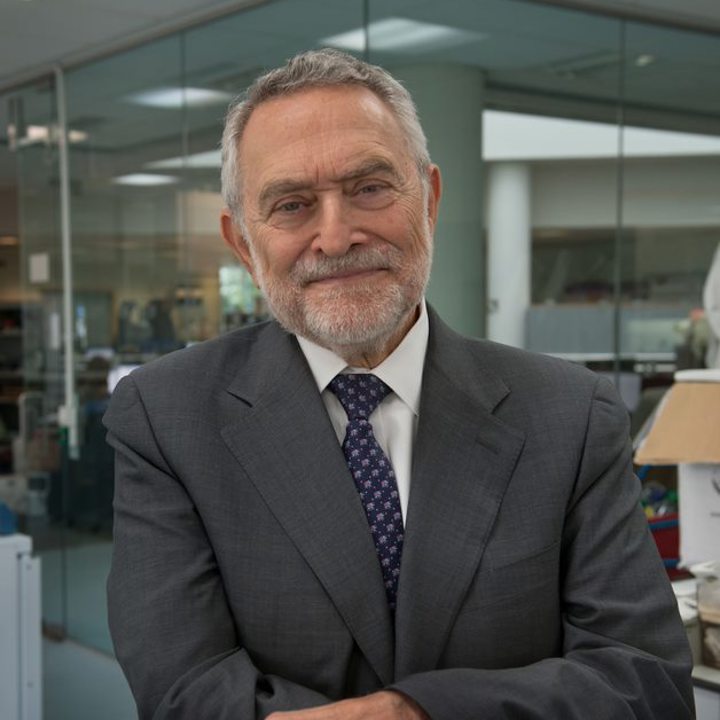
The Centenary Award
The Centenary Award is awarded annually to a molecular bioscientist based on the impact of their research and a demonstrable commitment to build, support, and nurture talent within the scientific community.
In 2011, the Biochemical Society introduced the Centenary Award to replace the Jubilee Lecture.
The recipient is given:
- £3,000 prize money
- The Centenary Medal (designed by the artist Tom Philips)
- The opportunity to present the Sir Frederick Gowland Hopkins Memorial Lecture at a Society event or webinar
- An invitation to submit an article to one of our journals, with any fees waived
Eligibility Criteria:
- Awarded annually to a biochemist of distinction by virtue of the impact of their research, along with commitment to build, support, and nurture talent within the scientific community
- Nominees are typically senior career
- Open to nominees based in the UK or internationally
- This award is only open to individuals
The Awards Committee will consider the following aspects of all nominations for The Centenary Award as appropriate:
- Originality of research
- Impact of research
- Quality of outputs – publications and/or patents and/or software
- Commitment to build, support, and nurture future talent e.g., mentorship
- Other indicators of esteem demonstrated by the nominator

Nominations for the 2024 Awards have now closed.
The Biochemical Society Awards programme is presented annually. Find out how to nominate in a future round.
How to NominateContact us
For further information please get in touch with the Awards department.
Related content
5 itemsRecipients
Matthias W. Hentze
Matthias W. Hentze

The 2023 Centenary Award will be presented to Professor Matthias Hentze. Matthias is the Director of the European Molecular Biology Laboratory (EMBL) and Co-Director of the Molecular Medicine Partnership Unit (MMPU). Following medical training in Germany and the UK, he codiscovered “iron-responsive elements” as the first mammalian regulatory elements in mature mRNAs during his postdoctoral research at NIH. After two decades of elucidating mechanisms of RNA regulation by RNA binding proteins, the Hentze group recently uncovered hundreds of new RNA-binding proteins, including many metabolic enzymes. Their current work focuses on riboregulation in metabolism and cell biology.
Matthias is a co-founder of the MMPU, an interdisciplinary and translational research unit between EMBL and Heidelberg University. His work has been widely recognized, including Germany’s most prestigious Gottfried Wilhelm Leibniz Prize and the Lifetime Achievement Award of the RNA Society. He is an elected member of the European Molecular Biology Organisation, the German Academy of Sciences Leopoldina, the Academia Europaea, the Australian Academy of Science, and the American Academy of Arts and Sciences. Matthias serves on numerous scientific advisory and editorial boards, and in 2020 initiated the Environmental Research Initiative and Fund.
Matthias says: “I feel deeply honoured to receive this prestigious award which I want to share with the many outstanding team members whom I had the pleasure to mentor. RNA science holds so many more exciting secrets and I hope that the award helps to draw attention to this.”
Jeremy Thorner
Jeremy Thorner

The 2022 Centenary Award was presented to Professor Jeremy Thorner. Professor Thorner is a biochemist recognized for his contributions to our understanding of biological signal transduction mechanisms. Born, raised, and educated in the public schools in Quincy, Massachusetts, USA, he received his A.B. magna cum laude (Biochemical Sciences) from Harvard College (1967) and his PhD (Biochemistry) under Henry Paulus from Harvard University (1972). He was a Jane Coffin Childs Postdoctoral Fellow (1972-74) under I. Robert Lehman in the Biochemistry Department at Stanford University School of Medicine. Appointed to the faculty at the University of California, Berkeley, in 1974, he held the William V. Power Chair in Biology for 20 years (1991-2011). He is (since 2020) Professor Emeritus of Biochemistry, Biophysics and Structural Biology in the Department of Molecular and Cell Biology at UC Berkeley. Other honors he has received for his research and teaching include a 10-year MERIT Award (1989-1998) from the National Institute for General Medical Sciences, the Dean’s Award for Distinguished Research Mentoring of Undergraduates in the College of Letters and Science at Berkeley (2004), election to the American Academy of Arts and Sciences (2007) and US National Academy of Sciences (2015), and the Herbert Tabor Research Award of the American Society for Biochemistry and Molecular Biology (2019).
Jeremy said: "When I examine the list of previous recipients of the honor of The Centenary Award, and its predecessor the Jubilee Lectureship, I am truly humbled to be placed in the same company. Moreover, I freely acknowledge that, through me, this high accolade is actually bestowed on each of the many outstanding scientists who worked with me over the past 47 years and were directly responsible for our mutual success".
Jeremy presented his Award lecture at the 5th European Workshop on AMPK and AMPK-related kinases on 27 September 2022.
Kim Nasmyth
Kim Nasmyth

The 2021 Centenary Award will be presented to Professor Kim Nasmyth at the University of Oxford, UK. Kim currently holds the Whitley Chair at the Department of Biochemistry, University of Oxford and is a fellow of Trinity College. After completing his PhD in the late 1970s, he has been a Robertson Research Fellow at Cold Spring Harbor, and a member of staff at the MRC laboratory for molecular biology in Cambridge. Kim later moved to the Research Institute of Molecular Pathology in Vienna, where he was a Senior Scientist from 1988–1997 and Director from 1997–2006. His scientific work has addressed the mechanisms by which genes are turned on and off during development, how DNA replication is controlled, and how chromosomes are segregated during mitosis and meiosis.
On winning the Centenary Award, Kim said: “I must confess that I never trained as a biochemist. I had planned to read chemistry but changed to biology shortly after arriving at university and eventually became a molecular geneticist. Ever since, I have always strived to explain biological phenomena in terms as simple as possible. Partly by chance and partly by inclination, I have spent much of my research career attempting to understand the propagation of chromosomes during cell division, a biochemical process unique to living systems. This required molecular genetics to identify the key players, such as cohesin, but now requires biochemistry and biophysics to understand its mode of action. There are times now when I regret abandoning chemistry so early in my career, but if I had not, I would never have discovered cohesin or had the privilege to be one of the first people to study its remarkable enzymology. As a molecular geneticist, I am therefore especially honoured to have been recognized by the Biochemical Society’s Centenary Award as an honorary biochemist.”
Kim presented his Award Lecture at Genome organisation by SMC complexes on 29 September 2022.
Kay E Davies
Kay E Davies

The 2020 Centenary Award was presented to Professor Dame Kay E Davies of the University of Oxford, UK.
Kay completed her D.Phil studies at the Department of Biochemistry, University of Oxford. After a Royal Society Fellowship in France she moved back to St Mary’s Hospital Medical School to study Duchenne muscular dystrophy (DMD), a progressive muscle wasting disease. In 1984, as a MRC Senior Fellow, she moved back to Oxford to work on the molecular analysis of neurological disorders. She was appointed Professor of Genetics and then Dr Lee’s Professor of Anatomy and set up the MRC Functional Genomics Unit to apply genomics to genetic disease analysis. Her own group focuses on the development of therapeutic strategies for DMD. Kay’s earlier work paved the way for the use of mini dystrophin gene delivery using AAV and contributed to the exon skipping approach to therapy. She also discovered the dystrophin related protein, utrophin, and demonstrated that increased levels of utrophin can compensate for the lack of dystrophin in the mdx mouse model of the disease. This has led to the identification of small molecules which increase utrophin in adult mdx muscle and prevent pathology. Kay co-founded Summit Therapeutics to translate her work into the clinic. She is a founding fellow of the UK Academy of Medical Sciences and was elected a Fellow of the Royal Society in 2003. She was a Governor of the Wellcome Trust from 2008-17 and Deputy Chairman from 2013-2017. Kay was made Dame Commander of the British Empire for services to science in 2008.
Kay said: “I am very honoured and delighted to have my work recognised in this way by the Biochemical Society. I am also very grateful to all the talented researchers I have had the privilege to work with over the years.”
Kay presented her Award lecture on Wednesday 29 July 2020 as part of the Biochemistry Focus webinar series. View the recording.
R. John Ellis
R. John Ellis

The 2019 Centenary Award was presented to R. John Ellis from the University of Warwick, UK. John has made fundamental discoveries through the study of the mechanism of protein folding essential for light harvesting and photosynthesis. His work focused on the pathway by which the key enzyme of photosynthesis (RUBISCO) – the most abundant protein on earth – is made and assembled in plant cells. From this specific case, John developed key concepts which have revolutionized thinking about how proteins assemble and fold in all cells. John termed these other proteins that assist in protein folding and assembly ‘molecular chaperones’ and his key insight showed that these chaperones are not restricted to the protein assembly pathway that he studied, but exist universally in all cells.
Frank McCormick
Frank McCormick

The 2018 Centenary Award was presented to Professor Frank McCormick from the University of California San Francisco Helen Diller Family Comprehensive Cancer Center. Frank has been a leader in the field of RAS oncogene function and regulation for over 30 years, having made a large number of seminal discoveries about the signalling pathway regulated by the RAS protein. His identification of RAS GAP marked the start of the rush to understand the regulation of RAS proteins and their normal role within the cell. With the identification of the NF1 protein as a member of the GAP family this led to fundamental understanding of Neurofibromatosis type I. Frank has also contributed very important observations about the downstream pathways regulated by RAS, including the RAF/MAPK pathway and PI3K signaling. Frank has also been hugely influential outside of his own lab, he founded ONYX Pharmaceuticals, a company dedicated to developing new cancer therapies. In addition to all this, Frank has also been President of the AACR and made many other contributions to the cancer research community at the highest level.
Of winning the Centenary Award, Frank said “I am absolutely thrilled to receive this award. It means a great deal to me to be recognized by my peers, especially as I was trained as a biochemist in the UK and attended many outstanding Biochemical Society meetings in which I made connections and gained new insights that have affected my entire career.”
Read his review article 'Progress in targeting RAS with small molecule drugs' published in the Biochemical Journal.
Salvador Moncada
Salvador Moncada

The 2017 Centenary Award was awarded to Salvador Moncada from the University of Manchester. Salvador has been successively at the forefront of three areas of research in his career to date. Earlier in his career he pioneered prostaglandin pharmacology, he was then a central figure in nitric oxide biology and he has since led the way in understanding how energy metabolism can be regulated and adapted by various signalling pathways. In all of these areas, his work has been ground-breaking and widely recognised by the scientific community.
Another major aspect of Salvador’s career has been his leadership roles, first in the Wellcome Research Laboratories, then at UCL and more recently at the CNIC in Spain and in Manchester. In all these projects Salvador has built a reputation in building research institutions and in developing the careers of others. He has also driven the translation of much of this work into new products and start-up companies. In all of these his ability to straddle the two worlds of basic and applied science was a huge advantage that enabled him to drive basic breakthroughs in ways that led on to improvements in human health.
Salvador presented his award lecture at the Biochemical Society conference entitled ‘ROS and Mitochondria in Nervous System Function and Disease‘, 27—29 March 2017, at Charles Darwin House, London, UK.
Patrick Cramer
Patrick Cramer

The 2016 Centenary Award was presented to Patrick Cramer from Max Planck Institute for Biophysical Chemistry, Germany. The award is made in recognition of Patrick’s successful systems biology approach to uncovering the importance of and mechanisms in transcriptome surveillance and RNA degradation in the balanced production of mRNAs. Furthermore, two important crystal structures were published in 2013.
Patrick Cramer received his award at the 80th Harden Conference: Machines on Genes IV – Mechanisms of Actions of Large Macromolecular Machines on Genes Across Biological Scales at Shrigley Hall Hotel, Macclesfield, UK, 31 July—4 August 2016.
Read his review article published in Biochemical Society Transactions here: Structure determination of transient transcription complexes.
Chris Marshall
Chris Marshall

G. Marius Clore
G. Marius Clore

The 2013 Centenary Award was presented to G. Marius Clore.
Read his article 'Seeing the invisible by paramagnetic and diamagnetic NMR' published in Biochemical Society Transactions here.
David Baker
David Baker

The 2012 Centenary Award was presented to David Baker.
Read his article 'Protein folding, structure prediction and design' published in Biochemical Society Transactions here.
Nahum Sonenberg
Nahum Sonenberg

The 2011 Centenary Award was presented to Nahum Sonenberg.
Read his review article 'Signalling to eIF4E in cancer' published in Biochemical Society Transactions here.
